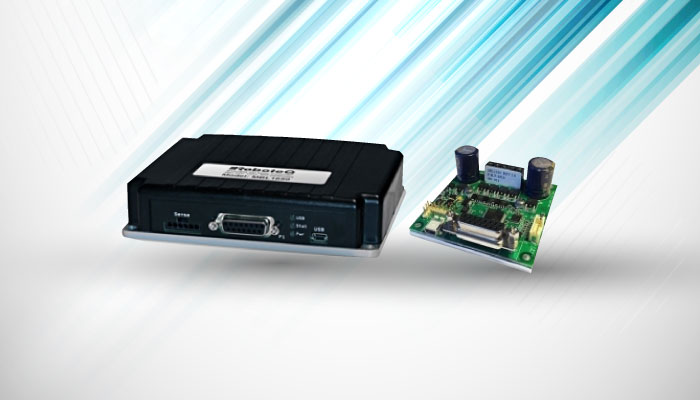How do Industrial Networks Drive Operational Efficiency in Manufacturing
.jpg)
In today's competitive manufacturing landscape, efficiency is paramount. Every second saved, every resource optimized, and every defect minimized translates to a significant advantage. Industrial networks play a critical role in this pursuit of efficiency, acting as the invisible yet crucial backbone that connects machines, devices, and systems within a manufacturing facility.
Industrial networks are specialized communication systems designed for the harsh realities of the factory floor. Unlike typical office networks, industrial networks must be:
- Reliable: Manufacturing processes cannot tolerate downtime due to network failures. Industrial networks offer robust and reliable communication with minimal latency (delay) in data transmission.
- Secure: Sensitive production data needs robust protection from cyber threats. Industrial networks have built-in security features to ensure data integrity and prevent unauthorized access.
- Scalable: Manufacturing facilities evolve, and networks need to adapt. Industrial networks can be easily expanded to accommodate new equipment and production lines.
- Real-Time Communication: Timely data exchange is crucial for efficient production control. Industrial networks enable real-time data exchange between machines, allowing for immediate adjustments and optimizations.
Benefits of Industrial Networks for Operational Efficiency
Here are some key ways that industrial networks contribute to a more efficient manufacturing environment:
- Improved Production Throughput: Real-time data from machines enables predictive maintenance, early detection of equipment issues, and quicker troubleshooting. This minimizes downtime and keeps production lines running smoothly.
- Enhanced Process Control: Industrial networks allow for centralized monitoring and control of manufacturing processes. This enables operators to react quickly to changes in production parameters, ensuring consistent product quality and minimizing defects.
- Optimized Resource Utilization: Real-time data from sensors and machines allows for better resource allocation, such as optimizing energy consumption and material usage.
- Enhanced Inventory Management: Integration with inventory management systems allows for just-in-time (JIT) inventory practices, reducing storage costs and waste.
- Improved Collaboration and Visibility: Industrial networks connect different departments within a manufacturing facility, fostering better collaboration and information sharing.
- Data-Driven Decision Making: Real-time data collected through industrial networks empowers informed decision-making. Production managers can analyze data to identify bottlenecks, optimize workflow, and continuously improve efficiency.
How Industrial Networks are Used?
Here are some specific applications of industrial networks in action:
- Machine-to-Machine (M2M) Communication: Industrial networks enable machines to communicate directly, facilitating automated production lines and real-time data exchange between equipment.
- Robotics and Automation: Robots and automated systems rely heavily on industrial networks for data exchange and control signals, ensuring smooth operation and precise movements.
- Supervisory Control and Data Acquisition (SCADA) Systems: SCADA systems use industrial networks to monitor and control production processes from a central location.
- Quality Control and Inspection: Industrial networks connect quality control equipment to central systems, enabling real-time data collection and analysis for defect detection.
The Future of Industrial Networks: Connected and Intelligent
The future of industrial networks is bright and intertwined with the rise of the Industrial Internet of Things (IIoT). Emerging trends include:
- Integration with IIoT: Industrial networks will seamlessly connect with a multitude of IIoT devices, sensors, and machines, generating a vast amount of data for real-time insights and process optimization.
- Advanced Analytics and Machine Learning: Data collected through industrial networks will be leveraged by advanced analytics and machine learning algorithms to predict equipment failures, optimize production processes, and drive continuous improvement.
- Wireless Industrial Networks: Advancements in wireless technologies like 5G are paving the way for secure and reliable wireless industrial networks, offering greater flexibility and scalability for factory floor layouts.
The future of industrial networks is brimming with possibilities! As IIoT and data analytics gain traction, industrial networks will play a pivotal role in optimizing manufacturing processes. Explore how Theta Controls' industrial communication solutions can help you harness the power of industrial networks and achieve peak operational efficiency in your facility.
Theta Controls offers Substation Switches., Managed DIN Rail Mount Switches, Unmanaged DIN Rail Mount Switches, Control Room Switches, Waterproof Switches, PoE, etc.
We are also in communication, monitoring, and control for industrial automation solutions.
Our industrial control system products include Process Control Instruments, Hybrid Data Logger
Paperless Chart Recorder manufacturer in India, Thyristor controller, Temperature Transmitter, Digital Timer, DC motor controller etc.
Contact us today.


